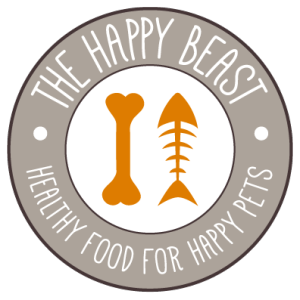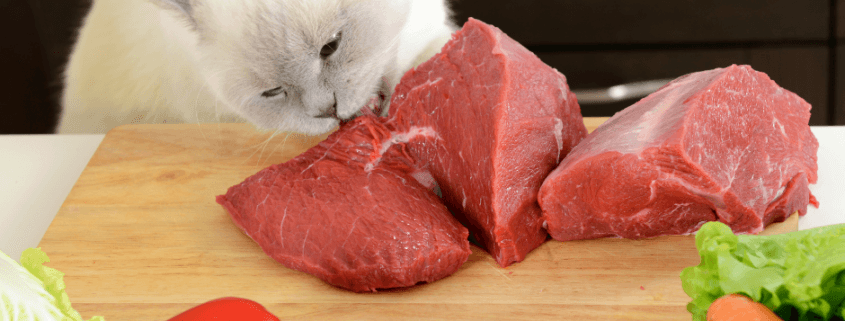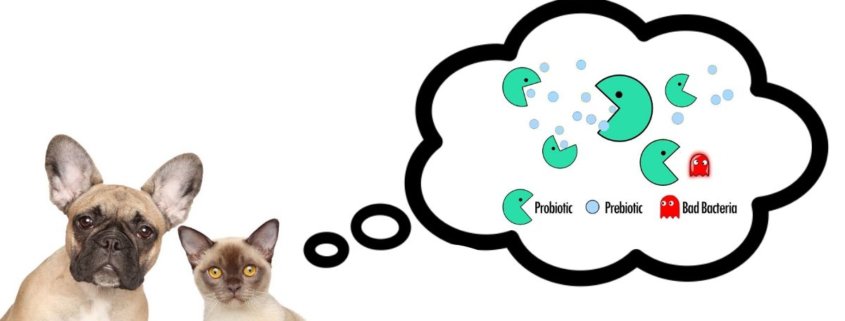The Vegetarian’s Pet Food Dilemma
As our understanding of livestock animals, and the conditions in which they are “farmed,” continues to grow, more and more American’s are avoiding meat – or at least being choosier about where their meat comes from. A recent survey found that two-thirds of Americans are actively reducing their meat consumption and 75% of Americans are concerned about the welfare of farm animals raised for food. Between 2014 and 2017, the number of vegans in the United States increased by 600%.
At the same time, pet ownership has steadily increased over the last few decades with approximately 85 million families including at least one pet. Dogs and cats make up the overwhelming majority of U.S. companion animals, which can lead to an ethical conundrum for the plant-based consumer who decides to welcome one of these carnivores into their home.
Although vegan and vegetarian dog foods are available, most experts agree that dogs are healthier on a species-appropriate, meat-based diet. Eating meat is even more vital for cats and we discourage ever putting a cat on a vegetarian/vegan diet as the likelihood of chronic illness increases dramatically. This is because despite thousands of years of domestication, dogs are still biologically, domesticated wolves, and cats are nearly indistinguishable from their African wildcat ancestors. As carnivores, there are a host of essential vitamins and minerals that dogs and cats can only acquire from meat.
If you’re one of the 90% of pet owners feeding your pet kibble, this may not seem like much of a dilemma, however, even the best kibble has devastating consequences for livestock animals, the environment, and the health of our pets.
The Problems With Kibble
was designed as a cost-effective, convenient method to make use of byproducts from the human food supply chain that would otherwise go to waste. Kibble is typically mass-produced in factories;often with multiple brands being manufactured at the same location with nearly identical ingredients. The big pet food manufacturers then market these burnt balls of grain and meat byproducts as a wholesome, complete diet.
Mass-produced products are inherently problematic when animal welfare and ethical sourcing are not involved, and it’s almost impossible to guarantee that the millions of farm animals turned into kibble were treated ethically and humanely. At The Happy Beast, we carry only a handful of brands of dog kibble and no cat kibble at all. Even among these few ethical companies, it is difficult, to find detailed sourcing information. Rather, consumers are assured that ingredients are “responsibly sourced” or “farm-raised,”which are vague labels that don’t actually mean much given the lack of standardization of these terms..
Beyond the impact on the lives of farm animals, there is a negative environmental impact of mass-produced pet food. A 2017 study estimated that dog and cat food is responsible for up to 30% of the environmental degradation caused by animal agriculture. Additionally, it is important to consider the environmental toll of manufacturing, packaging, and transporting the 9.4 million tons of pet kibble produced in the U.S. each year. The food we select for our beloved companion animals can have a much larger carbon footprint than we ever could have imagined.
Above all, kibble just isn’t a very healthy choice for pets. Most of us would be shocked if our doctors encouraged us to eat a diet consisting strictly of a single, highly-processed food. And we’d be even more skeptical if the doctors themselves were the ones selling it. Yet this is what we’ve grown to accept as healthy and acceptable for our pets; often without a second thought. Processed pet foods have been recalled hundreds of times due to deadly aflatoxins, mold, salmonella, foreign objects, and insufficient vitamins and minerals. Because of its high carbohydrate content, low moisture, and low-quality ingredients, kibble has also been linked to obesity, diabetes, kidney disease, urinary issues, and periodontal disease.
What should conscious consumers feed their pets?
While the question of what to feed your pet may seem complicated based on the above information, the solution is surprisingly simple: fresh foods from small companies that emphasize transparency. The idea of handling fresh meat may make many vegetarians squeamish, but the benefits for the planet, farm animals, and our pets far outweigh any personal misgivings that may come from having meat in the kitchen.
At The Happy Beast, we’re passionate about the planet and the animals we share it with. That’s why we’re working hard to create a sustainability rating for all the products we carry. While it’s still a work in progress, there are three companies we’d like to highlight based on their commitment to sustainability and animal welfare.
Answers Pet Food
Based out of Pennsylvania, Answers partners with small family farms that practice sustainable, rotational farming practices. All of their meat is organic, pasture-raised, and certified by the Global Animal Partnership (GAP) with some of their poultry reaching the highest standards possible. They have focused on reducing plastic in their packaging, and the paper and cardboard their food is packaged in is certified by the Forest Stewardship Council. The company even raises a large percentage of its own chickens and ducks and has its own goat herd for its raw goat milk and cheese.
Smallbatch Pet Food
As their name suggests, Smallbatch makes their food in small batches in Portland, OR. Smallbatch also strives to source its ingredients from local farmers who practice good stewardship of their animals, land, and environment. Many of these animals are also certified humanely raised by GAP. Organic produce means that synthetic fertilizers, pesticides, and herbicides don’t make their way into the environment, or your pet. Smallbatch also offers their food in lightly cooked preformed sliders for dogs, which can minimize handling for the truly squeamish vegetarian.
Anderson’s Pet Food
Anderson’s is a local Colorado company and sources all of its ingredients from Colorado, which immediately lowers its environmental impact. With a focus on novel proteins like bison and elk, all of Anderson’s livestock are pasture-raised and live their lives in a stress-free environment in the Rocky Mountains. Produce is also locally sourced and non-GMO. Every part of the animal is used so Anderson’s also offers healthy, natural chews like antlers, marrow bones, and tendons.
There are many other small, local companies working hard to create healthy, sustainable food with the welfare of animals in mind, but these are three of our favorites. For the welfare of farm animals, the environment, and our pets, fresh food from small producers will always be a better solution than mass-produced kibble.
Further Reading
Check out more of our blogs or stop by the store to find the best food for your pet.
- Meat & The Environment: Beef
- Understanding Puppy Food
- Overweight and Obese Cats – Why You Should Act Now
- From Kibble to Raw: A Feline Food Journey
- Simple Diet Solutions for Anti-Inflammation
- How to Decipher Pet Food Labels & Misleading Marketing
- Retrain the Cat Brain: Solutions for Eliminating Kibble
- Feline Nutrition with Veterinarian Dr. Angie Krause






